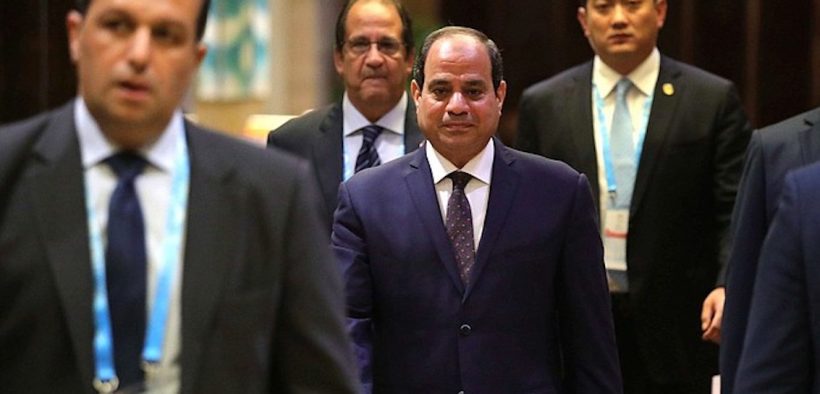Egyptian Police Raid Country’s Last Independent Media Outlet

“If there is no reaction to Zalat’s arrest, they will come for someone else, then another, and another. So, if you’re reading this, whether you’re a Twitter user or a newspaper editor – right now paying attention to Egypt can have a real effect. The regime is watching for the world’s reaction, for noise and outrage – let them see it.”
Days after Egypt’s last independent news outlet published an explosive article on the son of Egyptian president Abdel Fattah al-Sisi, the country’s police raided the outlet’s office and temporarily arrested four of its journalists. The outlet, called Mada Masr, is the lone survivor of Sisi’s fierce crackdown on press freedom, prompting activists to call for international pressure to stop the military dictatorship from killing Egypt’s last bastion of independent media.
In the article that inspired the raid, titled: President’s eldest son, Mahmoud al-Sisi, sidelined from powerful intelligence position to diplomatic mission in Russia, Mada Masr quotes anonymous top government officials who are critical of the nepotism and incompetence in Sisi’s government.
“Mahmoud al-Sisi’s rising prominence as a decision maker, as well as the increasingly frequent mention of his name in international and regional media outlets, had significantly harmed the public image of the president and his family and constituted a threat to the stability of the administration.” The article claimed the president “immediately welcomed” the idea of removing his son from the post.
The American Prospect notes that the Egyptian authorities’ search of the journalists’ phones and computers was probably focused on finding the anonymous intelligence officials’ quotes in the article.
Sisi has led a brutal crackdown on journalists since his military coup in 2013. Human Rights Watch estimates that there are 60,000 political prisoners in Egypt, and the country is among the top jailers of journalists in the world. “Since September, the regime has arrested at least 4,000 in a widespread crackdown after a series of whistleblower videos,” explains the Guardian’s Omar Robert Hamilton.
Hamilton emphasizes the uniqueness of Mada Masr’s survival, as the publication has been blocked by the government and is only accessible by private VPN, mirror sites, or social posts. He argues that the regime’s raid on the country’s last independent outlet is an experiment to test international reaction.
“Nobody can be certain why the regime has not shut it down, but the consensus is that the newspaper’s international reputation is too strong,” wrote Hamilton. “Today the regime is experimenting. They have arrested Shady Zalat as a test.”
While international response to the raid was mostly quiet, US Secretary of State Mike Pompeo issued a rare rebuke to the Egyptian government.
“As a part of our longstanding, strategic partnership with Egypt, we continue to raise the fundamental importance of respect for human rights, universal freedoms and the need for a robust civil society,” Pompeo said in a statement. “We call on the Egyptian government to respect freedom of the press and to release journalists detained in a raid last weekend.”
President Trump has been less critical of Sisi’s abuses, recently calling him “my favorite dictator.”
Sharif Abdel Kouddous, one of the journalists who was temporarily detained, told DemocracyNow that Trump’s rhetoric gives a green light for government oppression, but the problem is deeper than the current president.
“U.S. policy has not actually changed that much,” said Kouddous. “It is not a Trump problem; it’s a U.S.-Egypt relationship problem that has supported various different governments over decades. And Republican and Democratic administrations have done so.”
Kouddous argued that Western governments don’t care about the abuses of Egypt’s dictatorship, they care about about preventing migration to Europe. He notes huge arms sales to Egypt from countries like Germany, France, and Russia that bolster the power of the Sisi regime. The U.S. has also long been a top provider of weapons to the North African country.
Kuddous also spoke of the constant fear journalists in Egypt must endure, and how international attention is essential in preventing the Egyptian dictatorship from destroying the last remnants of the country’s free press.
“If there is no reaction to Zalat’s arrest, they will come for someone else, then another, and another,” wrote Hamilton in the Guardian. “So, if you’re reading this, whether you’re a Twitter user or a newspaper editor – right now paying attention to Egypt can have a real effect. The regime is watching for the world’s reaction, for noise and outrage – let them see it.”









